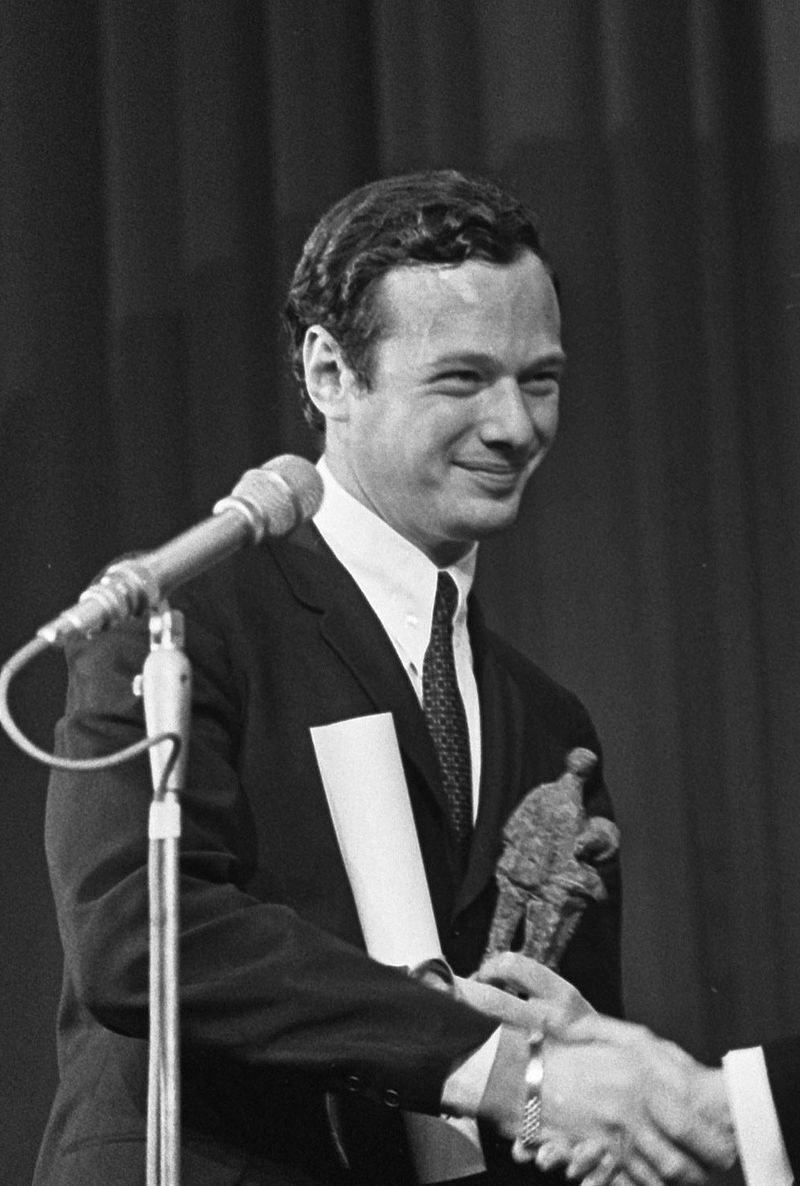Lennon’s words set off a storm of outrage in the United States. Demonstrators burned Beatles albums and Epstein was afraid that Lennon would be assassinated. “After Lennon made those remarks,” recalls Weiss, “Epstein wanted to cancel the whole tour, I met him at the airport and he asked me how much it would cost to cancel. I said about one million. He wanted to pay it. He didn’t want anything to happen to them and for them to be exposed to violence. And he wanted to make sure that anyone who had invested in the tour wouldn’t lose money.” The tour went on, stopping at stadium venues from Chicago to San Francisco.
When the Beatles came home they decided to exclusively focus on studio recording and went to work on one their seminal albums—Sergeant Pepper’s Lonely Hearts Club Band. Epstein loved touring and was disappointed by the band’s decision, but ever supportive, he helped launch the album with a party at his London residence.
Epstein was the glue that kept the foursome focused as they redefined popular music. “The Beatles followed him and believed in Brian,” says Bernstein. “He handled himself so beautifully and reduced what might have been huge problems to ‘Let’s get on with it, boys,’ and they did. It’s always tough keeping a group together. Each band member has their own problems and multiply it fourfold. But he kept them together, unified and they followed his recommendations to the letter.”
Even without touring, there was more than enough to keep Epstein busy. “There were so many deals, important deals,” says Bernstein. “His phones never stopped and the proposals given to him were of an enormous, enormous nature and enormous amounts of money.”
In hindsight, Epstein has been criticized for failing to secure the most lucrative deals for the Beatles during the 1960s. “It was a different era,” says Turner. “Bands today realize that they can make as much money from T-shirts, programs and spin-off products. But in those days, they didn’t know it.” Epstein was one of the first band managers to deal with merchandising contracts. “He really almost gave stuff away.”
Overall, the Beatles were pleased with Epstein’s management style and understanding of his shortcomings. “The problem arose because… he hadn’t done this kind of business before,” said Paul McCartney in In My Life. “He had a great theatricality. But I think some of the deals he got us were great for the time but not so great, it turned out.… I think for what he knew and for what he could bring us, he was really excellent, and I don’t think the Beatles would have been the same without him.… He was the director. That’s what he really was.”
Epstein’s value to the Beatles could not be measured by money, says Weiss: “I don’t think that what the Beatles needed was a great businessman. They needed a person who would inspire them, whose neurosis was sufficient for him to identify with them. And for Brian the Beatles were an alter ego. Brian was on stage with those Beatles emotionally and he devoted his life to them.”
The pressure of staying on top of the music world was relentless. The pill-popping habit that began when Epstein was first pitching the Beatles grew worse. He became dependent on sleeping pills and suffered from insomnia, depression and excessive irritability. He would take drugs to stay up at night and sleep away the day.
Despite Epstein’s manic hours and drug abuse, he made sure to pull himself together when he visited with his family, says Weiss. He remained especially close to his mother. “She had great taste and he had great taste. She was a very sophisticated lady, almost aristocratic in her bearing.” Mother and son discussed everything, including his relationships with men and her hope that he would one day get married. Joe Flannery says that Epstein “was also attracted to ladies, and I am saying ladies, and they were attracted to him. There was one, Alma Cogan [born Alma Angela Cohen], a huge star in the 1950s. He was very fond of her and she of him. Remember, he was very young. He was very busy and he didn’t really have any time for long-term relationships. If he hadn’t died he probably would have had a [long-term] relationship [with a man] by now. And a wife.”


One thought on “Brian Epstein: The Man Behind the Beatles”